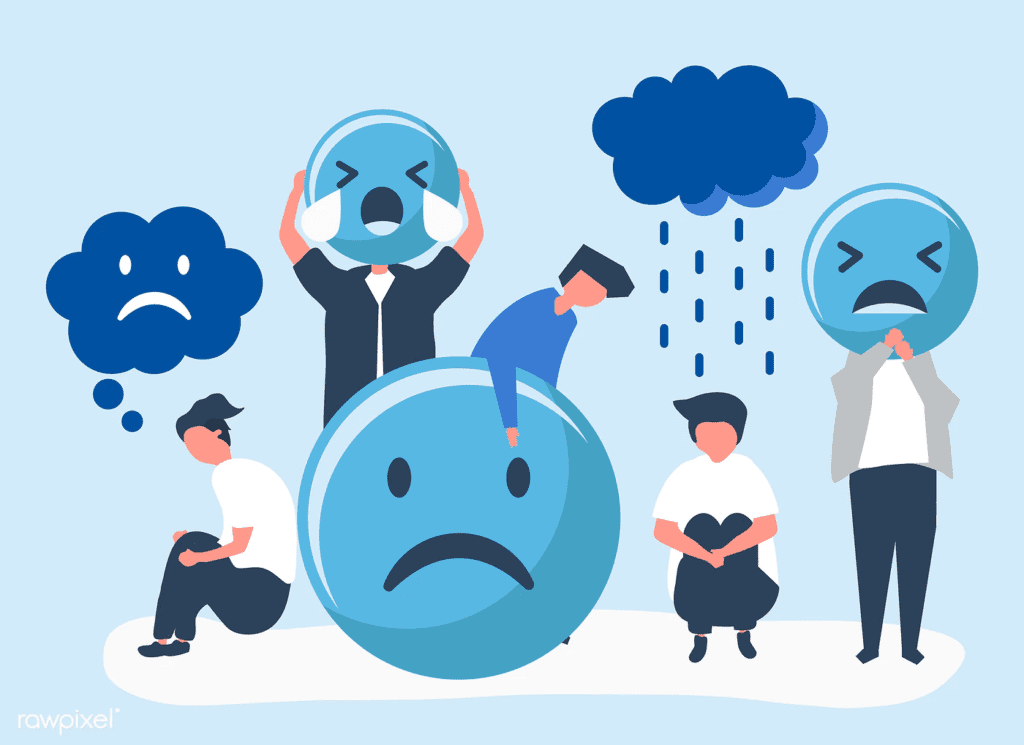Many individuals may feel tired, sad, melancholy, lethargic, or blue during fall and winter. Some may even experience a transient type of depression, Seasonal Affective Disorder.
This type of depression may affect up to ten percent of the population and appears at a particular time of the year, generally in autumn and winter and sometimes in spring. It vanishes when certain seasons are over.
Several reasons can explain these mood changes, such as lower temperatures or monotony. Still, the main factor to blame is the decrease in sunlight hours, which has several effects on our bodies, for example, the circadian rhythm.
The circadian rhythm is the internal biological clock that controls physiological and mental functions that depend on day and night, such as:
The light that reaches the retina and sends the information to the brain regulates this system. For example, a lack of light stimulates the synthesis of melatonin. This hormone induces sleep, while light (precisely the blue wavelength) causes the release of cortisol, which wakes us up and activates metabolism, among other functions.
Investigators believe that the decrease in daylight hours during the winter causes alterations in the circadian rhythm and contributes to mood change.
Sunlight produces vitamin D in the skin. During autumn and winter, vitamin D levels decrease in many individuals, and low vitamin D levels appear in individuals suffering from depression. In addition to this function, vitamin D plays an essential role in the processes discussed above, such as the production of serotonin and dopamine and regulating circadian rhythms.
Several habits exist that we can apply to try to avoid or improve the symptoms of Seasonal Affective Disorder (S.A.D.).
Next, here are six tips to help manage some symptoms of S.A.D.
The absence of light is one of the reasons people feel more depressed in winter, so that is the reason why light therapy is among the most common and effective treatment methods. It is recommendable to walk during the day, especially when it is sunny outside. There are also specialized artificial lights for home, which are particularly effective when used in the morning.

It is essential to maintain healthy sleep habits, as it helps to avoid disorders related to our internal biological clock that controls physiological and mental functions that depend on day and night. Here are some of them:
Physical activity or exercise not only has benefits at a physiological level improving cardiovascular and metabolic health but also has benefits to our mental health, having a proven antidepressant effect. The ideal exercise routine would be:
It is vital for mental health, as with any other health aspect, to follow a balanced diet rich in legumes, cereals, vegetables, and fruits and low in refined sugars and saturated fats.
Increasing the number of foods rich in tryptophan, such as legumes, nuts, dairy products, and oily fish, can help prevent anxiety disorders and depression, as tryptophan is a precursor of serotonin and melatonin.
In addition to tryptophan, magnesium and B vitamins (mainly B6) are also necessary for synthesizing serotonin and the correct nervous system. Foods rich in vitamin B6 and magnesium are legumes, nuts, whole grains, bananas, and oily fish. Foods rich in magnesium, not included in the previous list, are spinach and dark chocolate.
Stress is the preliminary step to anxiety, and prolonged pressure can lead to depression. All healthy habits contribute to controlling stress levels. Still, you may also need to practice other exercises, such as diaphragmatic breathing, meditation, or mindfulness, as they are ideal tools for controlling our day-to-day stress.
Having support from family or friends and sharing how you feel with them may help you maintain good emotional health. You will not only feel better, but you will help others if they are going through a similar situation.
Therapy with a professional counselor may also help you recognize triggers and help you adopt dealing skills for depression and anxiety. Ask for help whenever you feel you need it.
Our intention with this post is to provide health maintenance advice to the general public, but in no way is it a substitute for medical advice, diagnosis, or treatment.
If you think your symptoms of Seasonal Affective Disorder are getting worse or are very intense, do not hesitate to consult one of our medical specialists.
At Long Island Neurocare Therapy, your health and well-being are essential to our success. Contact us today. We are here for you.
https://longislandneurocaretherapy.com https://www.mayoclinic.org
Copyright © 2025 | All Rights Reserved